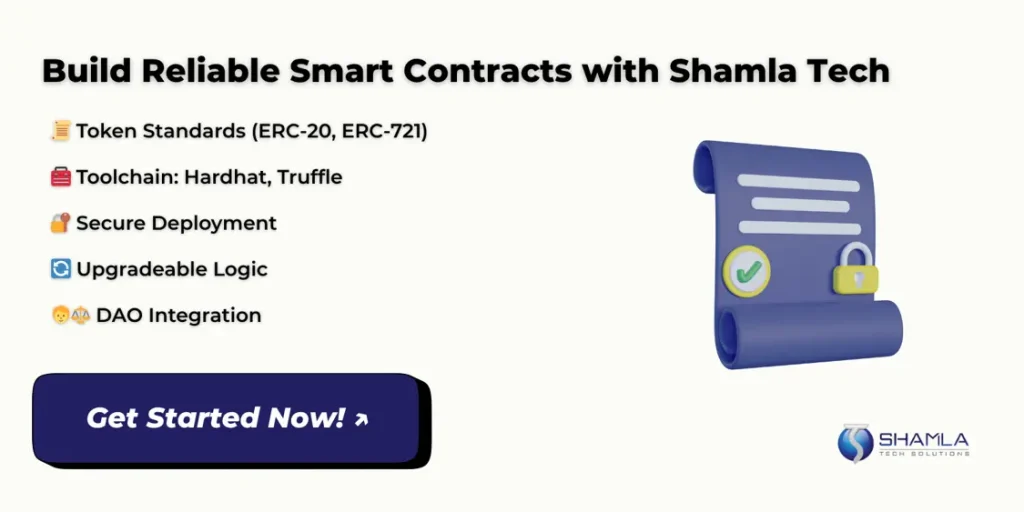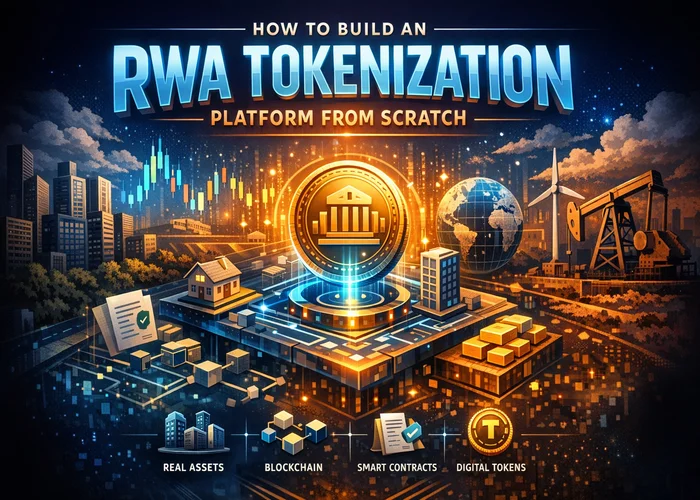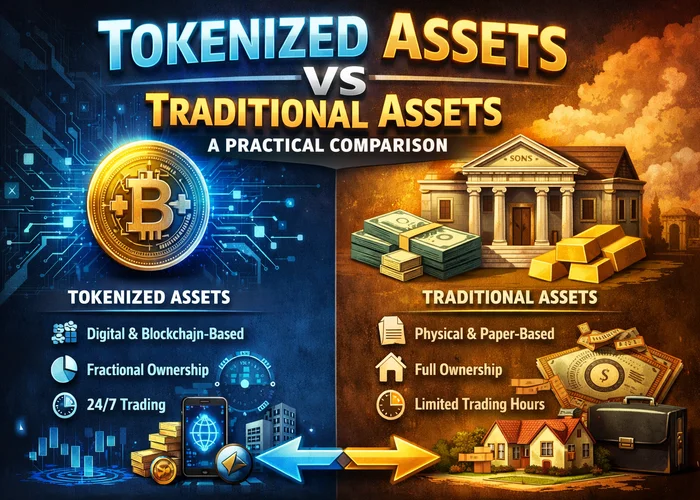Smart contracts are code-based agreements that automatically execute actions on a blockchain network when specific conditions are met. They carry out actions when conditions are met. The rise of Web3 has sparked interest in these self-executing codes. Web3 smart contracts allow businesses to exchange information and assets directly on the blockchain, removing the need for third-party intermediaries. Businesses see potential in lowering costs, speeding up tasks, and securing transactions. Smart contracts in Web3 work on decentralized networks, creating trust without a central authority.
Companies invest in Web3 smart contract development to create reliable systems on blockchain. These tools auto-execute agreements reliably and transparently. The shift reshapes how firms manage contracts and record operations.
Smart Contracts in Web3 and How They Impact Business Operations
1. Code-Driven Agreements
Smart contracts in Web3 serve as code that automatically enforces agreements on a blockchain. They replace legal paperwork with open protocols. A developer writes rules, and the network executes them without human review. This setup removes the need for lawyers or banks. Web3 smart contracts rely on decentralized nodes to confirm each step. They use consensus and cryptography to prevent tampering. This clarity ensures every stakeholder sees the same code. Once deployed, no party can alter terms without collective approval. Firms use these codes to align business logic with blockchain security. Adoption begins with clear design and comprehensive initial testing.
2. Automated Trust
3. Transparency and Speed
4. Supply Chain and Digital Identity
5. Limitations and Risks
Best Practices in Web3 Smart Contract Development
1. Secure Coding and Auditing
2. Testing and Simulation Frameworks
3. Use of Set Standards
4. Governance and Upgradability
5. Gas Optimization Techniques
Real-World Business Applications of Smart Contracts
1. DeFi Protocols
In DeFi protocols, code replaces banks, letting users borrow, lend, and trade directly. Developers build lending pools where assets lock until conditions meet. Smart contracts in Web3 manage collateral, interest calculations, and liquidations without manual input. Developers use open-source tools to build vault systems and governance logic. These contracts perform financial tasks instantly on-chain.
Liquidity providers earn fees as contracts rebalance pools without human oversight. Traders access flash loans by invoking single-call transactions. Protocols like Aave, Compound, and MakerDAO typify this approach with multi-token support. Web3 smart contract development teams integrate front-end dashboards to simplify interactions. This model democratizes finance and removes gatekeepers.
2. Insurance and Claims
Insurance companies pilot policies that pay out when external data triggers events. Developers link oracles to on-chain conditions, such as weather or shipping statuses. Smart contracts in Web3 verify triggers and release claims without manual review. Insurers set premium mechanisms and penalty rules in code.
Web3 smart contract development teams use decentralized feeds to ensure data integrity. Once a sensor reports crop damage or flight delay, the contract executes settlement. This removes lengthy claims processes and cuts operational costs. Customers receive faster refunds and transparent status updates, boosting customer satisfaction. Using open code modules helps insurers onboard new products quickly.
3. Intellectual Property
4. Real Estate Tokenization
Real estate platforms issue fractional tokens representing property shares. Investors buy, trade, and receive rent distributions programmatically. Contracts store ownership shares, lease terms, and sale conditions directly on the blockchain. Property titles update automatically as tokens change hands. Crowdfunding features allow capital raising for new developments.
Each token includes metadata that connects to legal files held off-chain. Real estate tokens appear on secondary markets with other assets. Auditors query transaction history to verify compliance. Mortgage servicers integrate with contracts for payment schedules and defaults. Developers update token logic via governance modules when regulations change. Tokenized assets bring liquidity to a historically slow market.
Conclusion
Smart contracts on blockchains streamline workflows by automating agreement execution, reducing reliance on central servers, and logging each transaction on shared ledgers. Execution triggers run without human steps, cutting delays and fees. Immutable code enforces terms instantly and transparently. On-chain data audits remove manual checks, boosting process speed and security.
Shamla Tech is a Web3 development company that designs, codes, tests, and launches reliable smart contract solutions that are customized for real-world business use across blockchain networks. Our engineers handle coding, testing, and audit processes using industry tools like Hardhat and OpenZeppelin.
Ready to Transform your Business with Web3 Smart Contracts?
Contact us today to get started!











